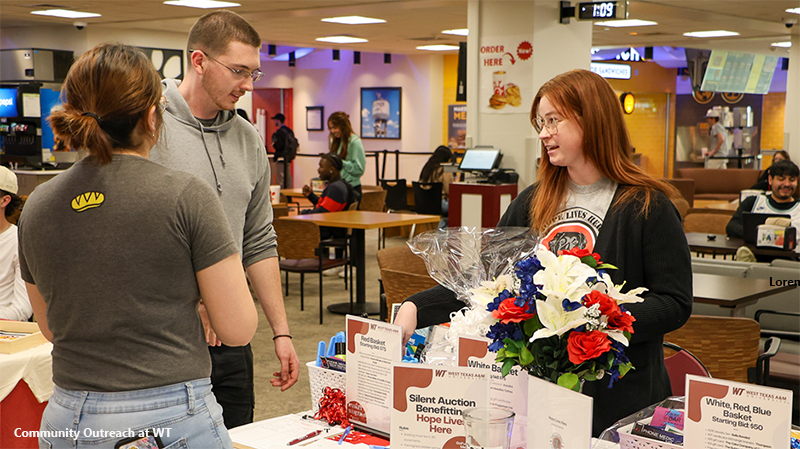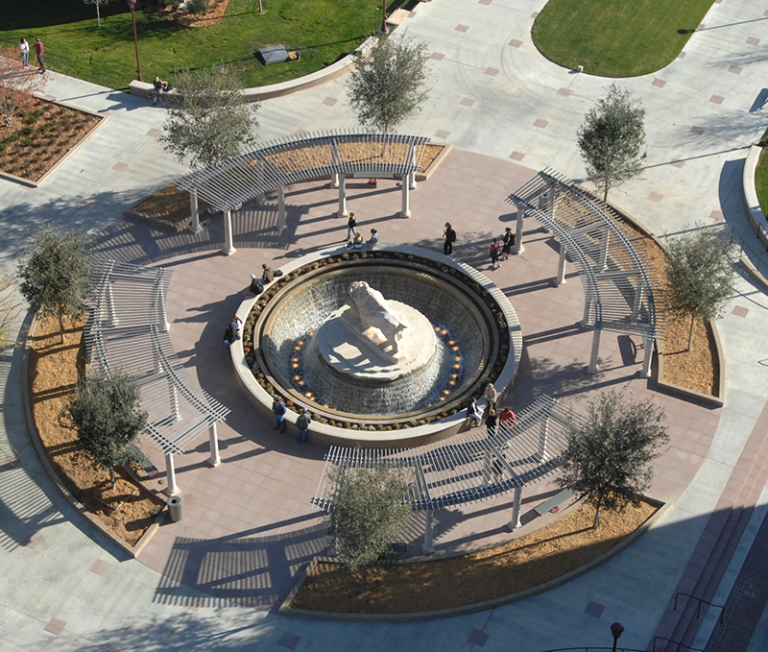
Civic engagement, individual and collective actions aimed at addressing public opportunities and challenges, is fundamental to constitutional republics in healthy societies and is a key driver of personal, institutional and community growth. Within regional universities, civic engagement becomes a transformative force, enhancing student development, bolstering virtues that sustain a free society founded through a republican form of government, aligning with local values—in the case of WT, panhandle values—and forging strong community bonds. In short, engaged citizens know themselves and their communities. Sam Wineburg correctly observes in Historical Thinking and Other Unnatural Acts, “The mind demands pattern and form, which build up slowly and require repeated passes, with each pass going deeper and probing further.” Engaged citizenship is only possible when history is the glue that cements communities together.
Studying past events like wars, economic crises, social movements, future hopes, as well as ideas and ideologies, excavates rational, thoughtful historical advances and mistakes, plus history can enliven successful strategies. History is more than facts; it is fundamentally a way of analyzing and elaborating purposeful community existence. Studying history teaches evaluating evidence, questioning narratives, discerning biases and making reasoned decisions. Engaged citizenship is impossible without understanding shared history, as it reveals both want and wisdom. Abraham Lincoln remarked in a speech at the Sanitary Fair in Baltimore on April 18, 1864, “The world has never had a good definition of liberty, and the American people, just now, are much in need of one.”
Current political, cultural and social structures are rooted in historical developments, governance systems and demographic shifts. Appreciating this lineage provides crucial context for today’s world. By studying and understanding the forces behind various perspectives across cultures, periods and experiences, we learn empathy and broaden our understanding of human motivations, behaviors and values. History connects us to our cultural roots, traditions and local and national identities. History frames who we are and how communities come together. Forming a shared past is vital for citizenship in a free society. Well-informed citizens need historical awareness to navigate political discourse, learn from past policy and contribute thoughtfully to a republican form of government. History helps us detect social, economic and technological patterns that inform future planning and decision-making. History and enlightened engagement train engineers, nurses, teachers, business leaders, agriculturists, artists and humanitarians of every stripe to strengthen society through citizenship.
All universities have a responsibility to foster civic engagement. They convene diverse groups of people at critical stages, providing fertile ground for intellectual exploration. Service-learning, community-based research and civic discourse cultivate empathy, leadership and understanding in a free society. Research repeatedly shows that sustained involvement in community service and civic activities enhances academic achievement, particularly when linked to course content. Such deliberate action enhances students’ civic attitudes and skills, reports the Wisconsin Department of Public Instruction. Through civic engagement, academic learning extends into real-life contexts. Engagement becomes practical and applied in “the several pursuits and professions in life” to sustain a free society as heralded in the Morrill Act.
University civic experiences shape not just careers, but inward, outward and civic identities. University-community partnerships establish reciprocal relationships: Students contribute effort, insight and innovation while communities gain resources, research and fresh perspectives. These ties foster social capital and shared problem-solving capacity. Moreover, regional universities, like West Texas A&M University, align educational programs with local economic and civic needs, supporting mobility and community vitality. The real power of regional universities is evident here.
Regional universities must cultivate civic participation, engaging students in thoughtful, rational discourse grounded correctly and simultaneously in American tradition, which establishes local impact and state and national direction. Too frequently, locales are overlooked when impacting states and nations. Location should be the first place of application to have a greater influence and engage in larger conversations, which is impossible without a comprehensive understanding of its history. The unbridled power of instantaneous international digital dialogue bypassing the community is a national tragedy.
Civic engagement within universities is more than extracurricular; it’s foundational. According to The Policy Circle, it cultivates critical thinkers, visionary leaders and committed citizens. It closes the gap between academic knowledge and societal need, bolstering participation and community resilience. University-driven civic engagement is an essential catalyst for meaningful intellectual and civic growth. Understanding history is critical in higher education. Contextual understanding, thinking and analysis, cultural awareness, empathy, interdisciplinary relevance and situating vocational expertise are essential to the health and vitality of a free society. Peter Stearns, writing for the American Historical Association, makes this point: “Historical study is essential to understanding the complexity of the modern world…It provides the basis for understanding how societies function and evolve.”
Is this lofty utopianism? I think not. It’s informed pragmatism. This is West Texas A&M University. We are one of hundreds of regional American universities that quietly and relentlessly sustain a free society.
Walter V. Wendler is the President of West Texas A&M University. His weekly columns, with hyperlinks, are available at https://walterwendler.com/.




